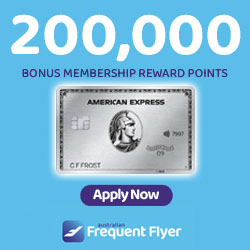markis10
Veteran Member
- Joined
- Nov 25, 2004
- Posts
- 31,891
- Qantas
- LT Gold
- Virgin
- Red
- Oneworld
- Sapphire
I stumbled on this today, while its related to Priority Club, it does talk about the value of loyalty programs in general in terms of their aims, so I thought I would post the link in the general discussion area!
http://aut.researchgateway.ac.nz/bi...d=545996751BA5592F378756CC6811F69E?sequence=2
While its a little old now, its a good view of loyalty programs including quotes and references from Radisson etc!
http://aut.researchgateway.ac.nz/bi...d=545996751BA5592F378756CC6811F69E?sequence=2
While its a little old now, its a good view of loyalty programs including quotes and references from Radisson etc!

















